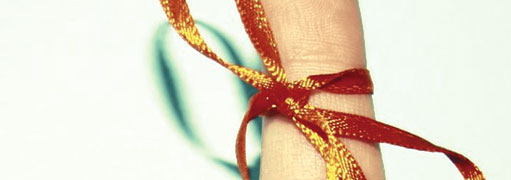A lot has gone on since that horrific Tuesday morning a decade ago. We’ve changed as a country. We’ve waged constant warfare in multiple venues against terrorism (as if it were actually possible). And in our conduct of that war we have been willing to play by the terrorists’ rules. Torture, assassination, rendition and detention are all part of our own tactical armory today.We’ve also proven all too willing to exchange many of our freedoms for safety, and we’re less safe than ever. We have sent thousands of our finest young men and women to die in distant lands. And there is no true end of that grisly process in sight. We’ve thrown trillions of dollars down the drain of this hopeless endeavor and are struggling to salvage yet another victim of 9/11: our economy. But anniversaries like this ought to be as much about mapping the future as rehashing the past. If examining what happened on Sept. 11, 2001, doesn’t help us plot a wiser course, we haven’t gained anything at all from it. Unfortunately, we seem afflicted with a national learning disability when it comes to mining lessons from our experiences with disasters.But it’s impossible to teach a lesson to someone who profits from not learning. And our national leaders—our commercial and political oligarchs—are accumulating vast wealth by wearing blinders. The top 5 percent of American society is awash in cash and has never been fatter or cattier. The super-rich are unable to understand what the rest of us are upset about or why the rest of the world community is astonished at the extent of our greed. Any hint that perhaps the playing field ought to be leveled just a bit is met with angry roars of denunciation for waging “class warfare.”So the plaintive reminder we see everywhere this 10 th anniversary, the determined “We will never forget,” begs the question: What exactly is it we are trying to remember? We erased whatever lessons Vietnam offered us 50 years ago. We lost most of what our political martyrs John Kennedy, Martin Luther King Jr., Malcolm X and Robert Kennedy tried to teach us. We keep repeating the mistakes we vowed never to make again after Richard J. Daley, Richard Nixon and Spiro Agnew abused political power so terribly. And, as the King of Siam told Anna, “Et cetera, et cetera, et cetera!”It’s predictable that we will forget 9/11. We have always gone blank before. Because to truly remember demands that we understand why the attacks happened and that we change what we do. The United States enjoys the self-image of a caring, democratic society eager to right wrongs and bind up wounds around the globe. Why did we become a target of hatred ferocious enough to demolish the twin towers and all the lives within?How did the way we see ourselves get to be so different from the way we are seen by millions of desperate people elsewhere? To them, we are no longer a caring society. We are viewed as an exploitive, morally corrupt, imperial nation allied invariably with dictators and generals, not with nurses and teachers.None of that excuses the attacks. My point isn’t to assign blame but to figure out what that catastrophe suggests in the way of corrective action. If we don’t learn that lesson, the significance of 9/11 will be lost.Adjusting our course would start with taking a few simple steps. For instance, if we build an air base or naval station in another country, we should balance it out by building 50 schools and health centers there, too. Every tank or fighter jet we sell at closeout prices to a regime should come with a clean water system and electricity installed in a rural village as a bonus. Every foreign military officer we bring here to lavish with training and honors should be accompanied by an agronomist, engineer or midwife from that country who would receive equally high-quality education.That lesson won’t be very expensive to learn. We spend many times the amounts of those social services on armaments and military defense systems. Hospitals, schools and water systems will make us far safer by building true, independent allies—safer than we will ever be relying on bullets and drones to protect us.The twin lessons of 9/11 are quite clear: We won’t be brought down by terrorist acts, and military prowess alone cannot make us secure.We the people can build true national security by rigorously demanding that our treatment of other countries must always be consistent with our nation’s deepest democratic principles, not with corporate strategies for maximizing profit at others’ expense.When that becomes our foreign policy’s central theme, we will be able to honestly say, “We have not forgotten 9/11.”
Jerry Ortiz y Pino is a retired social worker, community activist and college instructor. He is in his second term as the Democratic state senator for District 12 in the New Mexico Legislature. He writes a regular column on politics for the Alibi .The opinions expressed are solely those of the author.






